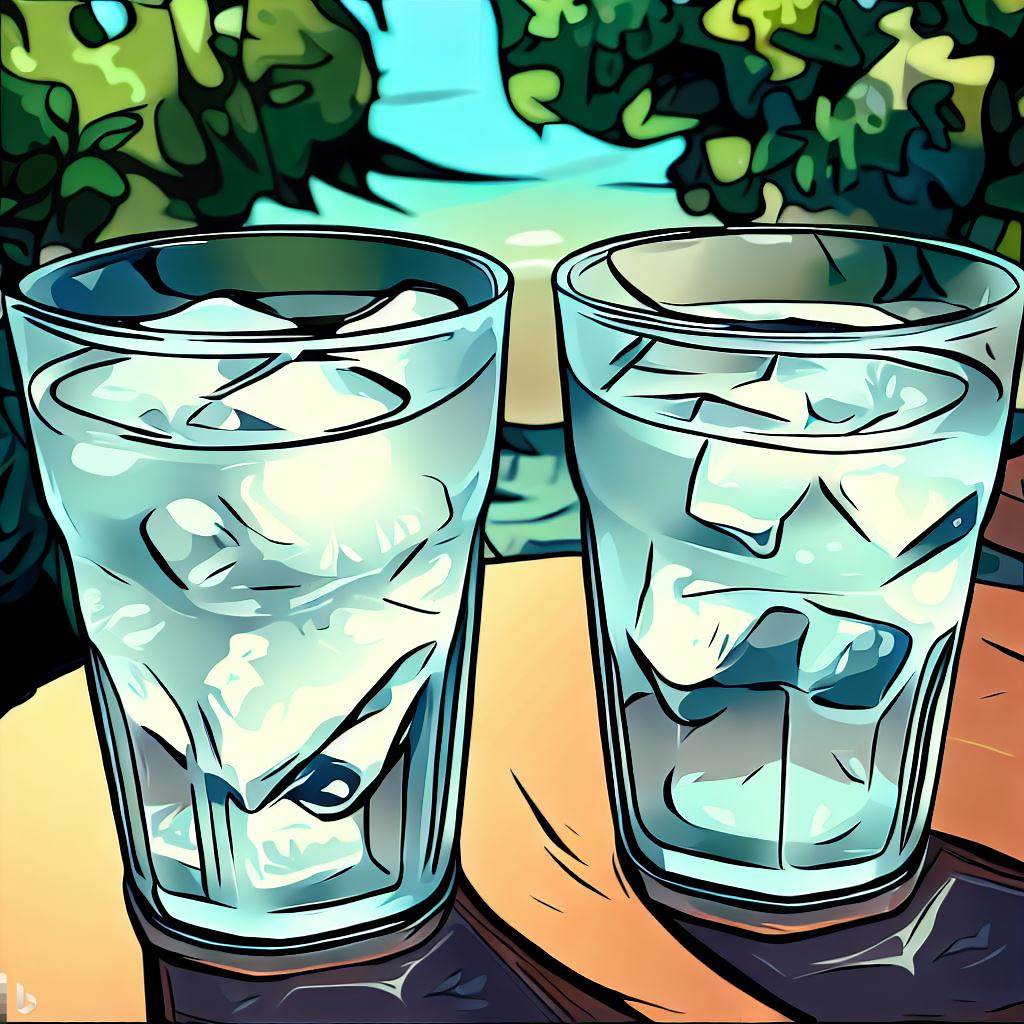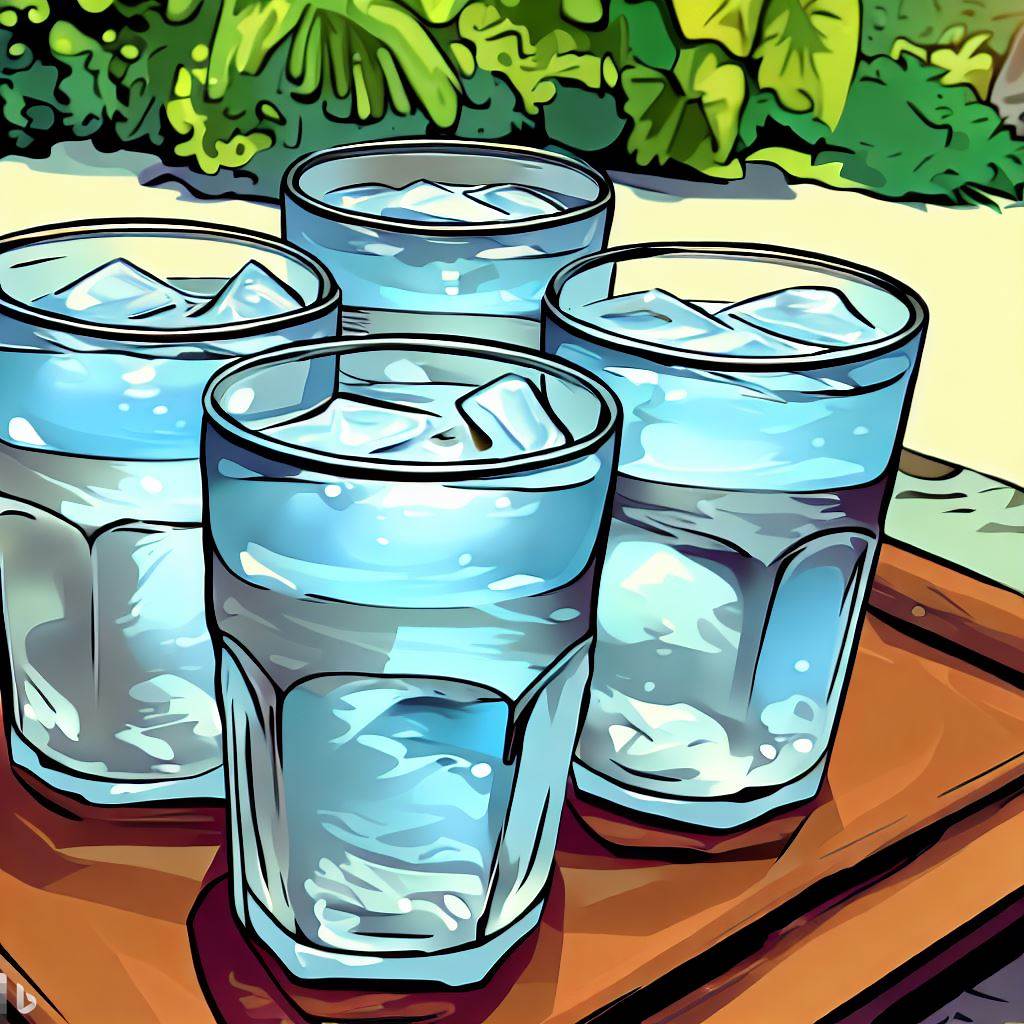Estimated reading time: 4 mins
Hydration is crucial for maintaining overall health and well-being. Our bodies consist of approximately 60% water, making it essential for various bodily functions, such as temperature regulation, waste elimination, and joint lubrication. However, the question of how much water is enough and how much is too much often confounds people. This article explores the optimal level of hydration and the risks associated with overhydration.
The Importance of Staying Hydrated

Water is the foundation of life, and staying hydrated is crucial for our survival. Adequate hydration helps us maintain a balance of bodily fluids, which perform various tasks such as digestion, circulation, absorption, and transportation of nutrients. Moreover, water plays a vital role in regulating body temperature, lubricating joints, and eliminating waste products through urine, sweat, and bowel movements.
Dehydration, on the other hand, can lead to several health issues, including dizziness, fatigue, constipation, and kidney stones. Severe dehydration may result in more serious complications, such as heat stroke and low blood pressure.
How Much Water Should You Drink?
Several factors, such as age, gender, activity level, and climate, influence an individual’s hydration needs. The National Academies of Sciences, Engineering, and Medicine provide general guidelines for daily water intake:
- For men, about 3.7 liters (13 cups) of total water from all beverages and foods
- For women, about 2.7 liters (9 cups) of total water from all beverages and foods
These recommendations include water from all sources, including beverages like tea (I love green tea), coffee, and juice, as well as water-rich foods like fruits and vegetables.
However, these guidelines are not one-size-fits-all. Your specific water needs may vary depending on various factors, such as:
- Activity Level: Engaging in physical activity increases your body’s water requirement. As a rule of thumb, drink an additional 0.5 to 1 cup of water for every 30 minutes of moderate exercise.
- Climate: Hot and dry climates or high altitudes may lead to increased water loss through sweat and respiration. Be sure to increase your water intake accordingly.
- Pregnancy and Breastfeeding: Pregnant and breastfeeding women require more water to support the needs of the baby and their own bodies. They should consume an additional 0.3 to 0.7 liters (1 to 3 cups) of water per day.
- Illness: When battling fever, vomiting, or diarrhea, your body may lose fluids at a higher rate. Increasing fluid intake during these times is essential.
- Alcohol Consumption: Alcohol acts as a diuretic, increasing urine production and water loss. To counteract this, drink more water when consuming alcoholic beverages.
The Dangers of Overhydration
While staying hydrated is essential, it is also possible to consume too much water, leading to a condition known as hyponatremia or water intoxication. Overhydration dilutes the sodium levels in the blood, disrupting the balance of electrolytes and causing cells to swell. In severe cases, this swelling can result in life-threatening complications, such as seizures, coma, and even death.
Symptoms of overhydration include:
- Nausea and vomiting
- Headache
- Confusion or disorientation
- Seizures
- Swelling in hands, feet, or ankles
- Shortness of breath
- Muscle weakness or cramps
Overhydration is relatively rare and usually occurs in endurance athletes or individuals who consume excessive amounts of water in a short period. To prevent overhydration, it’s essential to strike a balance between meeting your body’s hydration needs and not consuming water excessively.
How to Stay Hydrated Without Overdoing It


To maintain a healthy balance of hydration, follow these practical tips:
- Listen to Your Body: Thirst is an excellent indicator that your body needs more water. Make it a habit to drink water regularly throughout the day, and don’t wait until you’re parched to quench your thirst. However, be mindful not to drink large amounts of water in a short period.
- Check Your Urine: The color of your urine can provide a good gauge of your hydration status. Aim for a light, pale-yellow color. Dark yellow or amber-colored urine may indicate that you need to drink more water, while completely clear urine could be a sign that you are overhydrated.
- Adjust for Exercise and Climate: When exercising or spending time in hot, dry climates, increase your water intake to compensate for the additional fluid loss. Remember to drink more water before, during, and after physical activities.
- Monitor Your Weight: Weigh yourself before and after strenuous activities, such as long-distance running or intense workouts. For each pound lost during exercise, drink 16 to 24 ounces of water to replenish the lost fluids.
- Eat Water-Rich Foods: Consuming water-rich fruits and vegetables, such as watermelon, cucumber, and strawberries, can contribute to your daily water intake and help you stay hydrated.
- Consult a Healthcare Professional: If you’re unsure about your hydration needs or have any concerns, consult a healthcare professional for personalized guidance.
Conclusion
Hydration is essential for maintaining optimal health and well-being. While there are general guidelines for daily water intake, it’s crucial to consider individual factors, such as activity level, climate, and health status, when determining your specific needs. Striking the right balance between staying hydrated and avoiding overhydration can help prevent potential health issues and keep you feeling your best. Always listen to your body, monitor your urine color, and consult a healthcare professional if you have any concerns about your hydration status.
